Sports are an American pastime, and one that can offer a variety of physical, mental, and social benefits for those who take part (Logan & Cuff, 2019; Eime et al., 2013; Doré et al., 2018; Lastuka & Cottingham, 2015; Lechner, 2009). However, it has become clear that sexual, emotional, and physical abuse occur in the context of sport at higher rates than previously understood or acknowledged (Ford et al., 2020; Mountjoy, 2019).
The Protecting Young Victims from Sexual Abuse and Safe Sport Authorization Act of 2017 named the U.S. Center for SafeSport (“Center”), a 501(c)(3) nonprofit, as the nation’s safe sport organization. The Act codified the Center’s scope and authority to resolve abuse and misconduct allegations for more than 11 million individuals throughout the U.S. Olympic and Paralympic Movement (“Movement”).
The Center’s core mission seeks to address this problem and, end the of abuse of all Participants, including minors, in sport. Considering its exclusive jurisdiction, the Center’s primary focus is to assess and investigate allegations of sexual misconduct. After finding a violation occurred, the Center imposes sanctions up to a lifetime ban from involvement in the Movement.
To accomplish its mission, the Center often works with individuals who have been abused and are impacted by the trauma of that abuse. As a result, Center staff frequently coordinate and collaborate with Law Enforcement agencies, Child Advocacy Centers, and Prosecutorial Offices.
In this session, we will discuss the Center’s creation and its current work which involves Education, Prevention, and Organizational and Individual Accountability. We will also talk through the current Response & Resolution process of receiving and investigating allegations of misconduct and abuse. Finally, we will utilize specific case studies involving sexual abuse of minors to discuss the ways in which the Center collaborates with organizations across the country to obtain the best outcomes in matters that involve abuse and the Movement.
